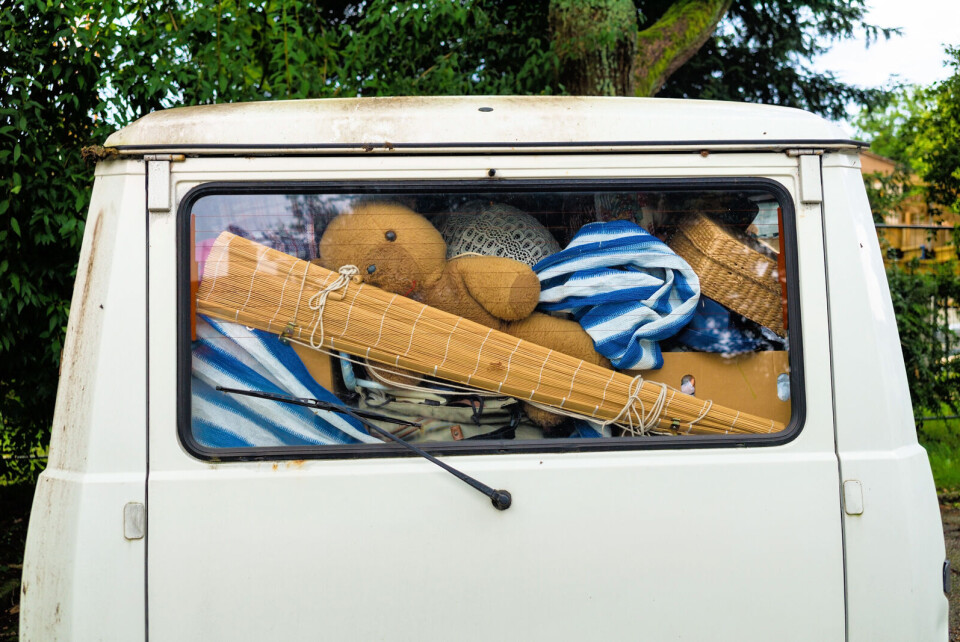-
Trump calls for Marine Le Pen to be freed (but she is not in prison)
US president said her embezzlement court case was a ‘witch hunt’
-
France’s €3 book delivery fee challenged in EU court by Amazon
Online retailer said measure is protectionist and ‘in breach of EU laws’
-
Allergies: How to know pollen levels in your commune of France
Interactive online maps can track and predict how pollen is changing in the air
French customs: Rules for taking furniture from UK to second home
Documents such as proof of home ownership/rental agreement and full inventory of furniture are among the paperwork now needed post-Brexit. We explain more

Several readers have asked about customs procedures for bringing over furniture and other items from the UK to a French second home.
Prior to Brexit there were no customs checks on private cars or vans coming to the continent, however this has now changed.
Based on readers’ reports so far, there is the theory and then the practice – with some visitors going through with minimal or no checks and others not so.
Here are the official rules as clarified to us by officials of the French Douanes (customs) service. Notably if bringing a conspicuous load of items into France above and beyond normal luggage, we advise bearing them in mind and, if possible, seeking advice on your specific situation from the Douanes.
Information can be obtained, in French or English, from the UK on 0033 (0)1 72 40 78 50 or in France on 08 00 94 40 40.
These rules concern bringing items from the UK, for example from your main home to a French second home; other rules apply when moving to France as a change of home.
When taking items into France from the UK, French VAT at the appropriate level, and potentially customs duties as well, can be payable.
French VAT is 20% on most items other than, for example, 5.5% on food and books.
Customs duties are only payable on items that are not proven to have been made wholly or mostly in the UK or the EU.
Duties are charged at variable amounts by category of item but are zero on furniture. Where applicable, documentation or wording on the object saying it was ‘made in England’ should be sufficient, an official said. You can find examples of rates on the government website.
You should provide the following to the French customs officials on arrival in France:
- A document showing that you own or rent your French second home, for example a notaire’s attestation of ownership, home deeds or a landlord’s attestation.
- A written document in three copies with your full name and address in UK and then a list of items brought in, with quantities, weight and estimated value. Bring receipts if you have them, or make estimates, which may be subject to discussion with the customs officer.
For example write: 1 canapé [sofa], 100kg, valeur €700; 1 carton de vêtements [box of clothes], 5kg, valeur €80. Total = 2 colis [parcels/items], 105kg, €780. Date and sign.
When completing the inventory, group related items, such as vaisselle (kitchen crockery), meubles (furniture) with an estimated value for each group.
If some items are only being brought in temporarily – for example DIY or gardening equipment that you will take back to the UK, such as a lawnmower – they should also be itemised on a form cerfa 15678.
This can also be written by category of items. Tax is not payable on these.
For VAT and possible customs duties on items you are transporting with you while travelling, franchises voyageur – personal allowances – may come into play.
These are, for VAT, per adult (for their own items), €430 if arriving by plane or boat or €300 if coming by train or car/ van, as well as €150 per child under 15. A senior customs official said that this was originally designed for returning French tourists who might be bringing back gifts and souvenirs. Officials will assess whether or not they can apply in your case.
For customs duties the franchise voyageur is €1,200.
The official explained the calculation as follows:
For VAT, per person, you look at the amount of value of goods. There is no VAT if the total value is less than €300 and the goods are being brought by road. If the amount exceeds this then VAT is due in full on items that take the total over the €300.
For example if an adult brings two cameras worth €250 each, VAT is totally payable on the second camera, the official said.
The allowance for duties works similarly and is also per person apportioned to their part of the items, the official said, adding that a couple’s furniture would be seen as owned jointly, ie. half each.
For example if a person has €1,000 of furniture at 0%, and a €500 piano at 4%, then 4%x€500 = (€20) will be payable on the piano. However nothing would be payable if the furniture was only worth €500.
For a load comprising €1,000 of furniture at 0%, a €2,000 piano at 4%, a hand-woven carpet at 3% and a €250 box of clothes at 12% then duties are payable in full on everything but the furniture.
There is more information on item categories and duties online here.
You do not have to calculate the taxes yourself. In summary, if bringing items to furnish a second home, you should write an inventory and report to customs with this paperwork.
Related stories
UK-EU customs checks and taxes: Readers’ experiences so far
























